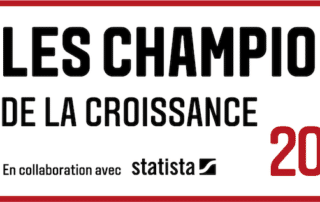After Office 365, Biotope turned to cloud hybrid with Microsoft Azure. Olivier Raynaud, its Director of Information Systems, agreed to talk about the reasons for this choice. He also talks about how his team uses cloud and the advantages of hybridisation.
Presentation of Biotope
Biotope is the leading environmental consultancy in Europe. Biotope has a subsidiary dedicated to communication and publishing and advises its clients via 18 agencies in France and the French overseas departments. Biotope also has an international presence, with 5 subsidiaries located in Morocco, Madagascar, China, Central Africa and Belgium.
Why did you choose the cloud hybrid?
Olivier Raynaud explains: "The choice of cloud hybrid came quite naturally, in successive phases. About three years ago, we realized that our architecture was at risk. We had a number of applications and machines in various locations. Indeed, we had different servers in several clouds and also on our premises. Our backup control was not in place. So we planned a roadmap to make it all evolve. We worked in iterations on two axes. First, the implementation of Azure, so an initial cloud for the services. Second, we invested in a datacenter with proprietary hardware for our research data and critical equipment. We wanted to keep them close to us.
Why did you choose cloud Microsoft Azure?
"The first brick with the Microsoft edifice was Office 365, which we switched to about four years ago. Our Active Directory was already in Azure. So we logically chose Azure, to benefit from a continuity of services with Microsoft and the support of our local partners. In all honesty, we didn't necessarily make a comparison, but rather an integration based on our know-how, our infrastructure and our services already in place, as well as our local partners," says Biotope's IT Director.
How does Biotope use cloud Azure on a daily basis?
Olivier Raynaud explains: "At present, our Infrastructure teams use cloud for two major reasons. First, it allows us to position virtual machines (VMs) on services (infrastructure-related or for our internal or external customers). Second, there is the availability of Kubernetes. This gives us the possibility to set up a set of business applications via containers, to deploy them easily and to work in DevOps mode. Containers also allow us to do POCs (Proof Of Concept) on certain issues that we will test for 1 or 2 months. If we don't like it, we have the option of shutting down the VM."
He adds: "We have uses more related to our Active Directory. Since it's in Azure, it makes our life easier with the interconnection with Office 365. We also have our DNS services, which are also in Azure, for speed of implementation and interconnection issues. Finally, we use PaaS (Platform as a Service) platforms, particularly for setting up databases, for example."
What are the advantages of hybridization?
"The advantages of cloud are many," confirms the CIO of Biotope. He argues: "The first is agility. When we need to set up a service fairly quickly, Azure knows how to respond very well with the interface with our infrastructure department, which has the capacity to set up everything easily. Our infrastructure team is quite small, consisting of two or three people. The implementation of a cloud , in particular Azure, will enable us to set up and administer all this easily, without having to deal with hardware issues. The second is the financial gain, since we can decommission quickly. We don't have to invest in hardware to be able to deploy things. That's what brings us to cloud.
But what is it that leads us to a hybrid cloud , i.e. an investment in a datacenter with its own hardware? It's the fact that we can control our research data, in other words our core business. We control the security chain from end to end. So we are able to set up redundancy.
This allows us to be vigilant about the company's sensitive data, while at the same time having agility on all the other more business-related issues, particularly in terms of architecture, services and applications through Azure."
Why did you choose Blue Soft Empower for your project?
"Our relationship of trust with Empower has been built over the last few years, first with the Office 365 support and its implementation, then with the integration of Azure and its various services. We appreciate having a partner of proximity and quality. In addition, they are experts that we can call on at any time to help our teams with specific problems. The Empower team also responds daily to our various problems and support needs.
There's another thing we like about Empower. It's their ability to say "I wouldn't be the best person to do that", and in return, to guide us towards their ecosystem of partners. These partners will be able to guide us on issues that sometimes fall outside the Microsoft framework, but for which we need support for interconnection with Office 365 or Azure," concludes Olivier Raynaud, CIO at Biotope.






